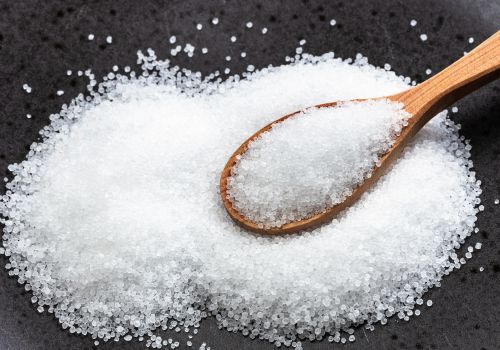The relationship between fructose and obesity is central to several health discussions. Assessing the sugars and filtering out their impact on your health is necessary to manage weight gain. An increase in fructose consumption has been linked to the rise in obesity.
Defining fructose
At Spatz3 we want to define what fructose is. Amongst the simplest form of sugars as a monosaccharide found in several plants. It makes up 50% of table sugar alongside glucose. The natural sources of fructose are fruits, vegetables, agave syrup, sugarcane, sugar beets, and honey.
Fructose is also available in sugar-sweetened beverages, candy, and ultra-processed foods such as high fructose corn syrup which is often linked with obesity. Processed foods and beverages contribute to weight gain and hence need to be monitored.

High Fructose corn syrup and obesity
High levels of sugar intake are harmful to your health. The HFCS contains high fructose as a refined sugar from corn syrup used as an additive to sweeten food. It is linked with cardiovascular diseases, type 2 diabetes, fatty liver disease, and obesity. HFCS can be ingested in liquid form, such as soft drinks and fruit juices, which increase the onset of metabolic syndrome and increase body weight. Once your metabolism slows down, you’re susceptible to weight gain.
Fructose and Weight Gain
Fructose weight gain highlights how excess fructose consumption negatively affects your weight. It contributes to fructose obesity in the following ways:
Insulin resistance
Pancreatic cells produce insulin which regulates glucose metabolism. However, fructose doesn’t trigger these cells to secrete insulin as its metabolism occurs in the liver. This effectively means that it doesn’t stimulate body responses that regulate hunger. Explorations conclude that fructose doesn’t bring out feelings of satiety compared to other sugars.
When excess body fat results from an imbalance of caloric input with energy output, these extra calories causing the imbalance come from caloric nutrients like sugars such as fructose. This is bad for our gastric balloon. When the body isn’t physically active, it promotes body fat accumulation, leading to obesity.
Promotes overeating
The hypothalamus, insula, and stratum are areas of the brain that regulate your appetite and control satiety. Fructose doesn’t affect these areas which triggers overeating.
Leptin resistance
Leptin resistance is when the brain restricts the sensation of feeling full even when you have a lot of leptin and fat cells. An increase in your fructose intake contributes to leptin resistance and subsequently obesity. It leads to overeating and excess fat storage.
An increased caloric intake overtime
Fructose accounts for a considerable amount of caloric intake due to adding HFCS in several processed drinks and foods.
Fructose metabolism
Fructose metabolism is the process in which fructose is broken down and used by the body for energy. Fructose lowers the Adenosine Triphosphate (ATP) concentration in cells and reduces the ability to make more. A low level of ATP sets off chemical reactions which stop the cell’s mitochondria from producing more ATP and causing oxidative stress.
In addition to lowering ATP, fructose ingestion stimulates further food intake, leading to extra calories stored as fat. Then, the ATP levels increase, and stored fat remains. As time progresses, the repeated oxidative stress leads to permanent mitochondrial dysfunction. In individuals with plenty of food available, the lower energy results in weight gain if the intake of calories is not reduced.

Fructose and Belly Fat
Individuals with high fructose intake have more belly fat, high levels of oxidized cholesterol, high blood sugars, and less insulin sensitivity. When there is less insulin sensitivity and high insulin levels, there are higher fat storage levels around the belly area. This explains the relationship between fructose and fat accumulation in the body.
Fructose is bad for weight loss because it accumulates fat and doesn’t quickly go away. You need to exercise and reduce caloric intake to manage fructose and obesity.
How to reduce fructose intake and manage weight loss
- Substitute sugary and processed foods with fruits.
- Limit your consumption of processed drinks and alternate them with non-added sugar beverages.
- Drink plenty of water.
- Opt for whole foods that are free of HFCS.
- Exercise for around 30 minutes daily for optimal benefits.
Understanding the relationship between fructose and obesity can help you achieve your weight loss goals when you know how to manage your fructose intake.


